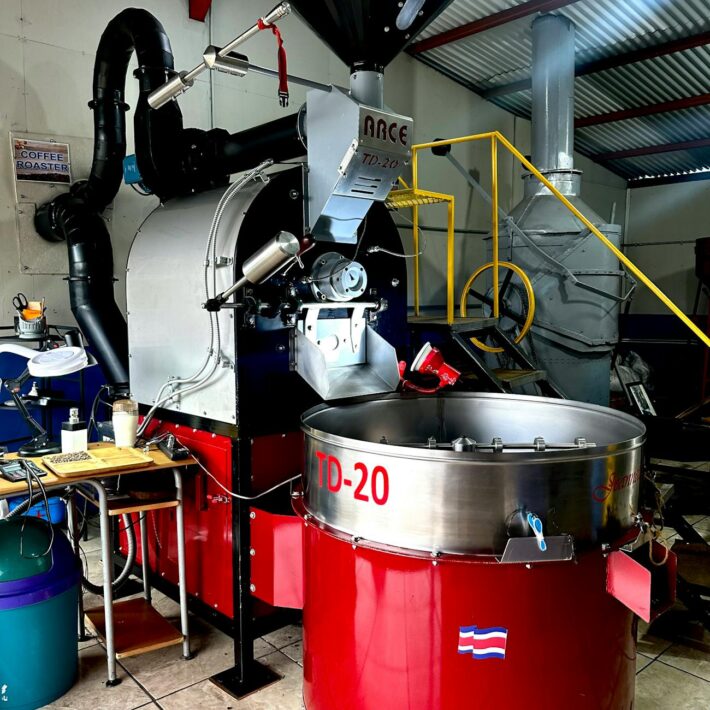Cultural Experience Business Ideas to Start in 2024

Contents
Spark Your Creativity: Cultural Experience Business Ideas for 2024
Igniting a passion for culture? This year offers endless possibilities for cultural experience businesses. From immersive tours to unique workshops, the potential for entrepreneurs is immense. This blog post will equip you with compelling business ideas to start in 2024, helping you craft a captivating brand and navigate the legal, marketing, and financial aspects of your venture.
Cultural Experience Business Ideas in 2024
Ready to explore exciting possibilities? Here are some standout ideas:
-
Artisan Workshops: Teach the art of traditional crafts like pottery, weaving, or calligraphy. This allows visitors to learn a new skill and connect with local traditions. The target audience includes art enthusiasts and tourists. A potential revenue model could be tiered workshops with varying levels of participation. Marketing could involve collaborations with local galleries and tourist information centers.
-
Culinary Adventure Tours: Explore local eateries and culinary experiences. Participants can learn about different cuisines, recipes, and food preparation methods. Potential customers are foodies and tourists, particularly in foodie cities and towns. Consider revenue models such as guided food tours or subscription boxes featuring regional products and recipes. Social media campaigns focusing on "foodie" communities and local food blogs can be successful marketing tools.
-
Historical Site Immersions: Create immersive experiences at historical sites. This could be through storytelling, reenactments, or interactive exhibits. The target audience is history buffs, tourists, and school groups. Revenue models could be tickets for tours or event participation. A strategic alliance with tourism agencies, historical societies, and local schools can generate a great outreach and marketing effect.
-
Cultural Costume Rental and Styling Services: Rent or style traditional clothing for events or photoshoots. This allows people to explore a culture and dress up in unique ways. Tourists and local event-goers are potential customers. Revenue can come from rentals, styling services, or even merchandise. Utilize social media platforms that highlight fashion and beauty, along with collaborations with local event organizers.
-
Language Exchange Programs: Facilitate language exchange programs for tourists and locals. This allows people to practice and learn new languages while immersing themselves in different cultures. Potential customers are tourists, language students, or professionals looking to enhance their language skills. Charge for course fees, tutoring sessions, or monthly membership. Partner with schools, language learning platforms, and community organizations.
-
Ethnic Dance and Music Workshops: Teach various ethnic dance styles or musical instruments. This provides people with an opportunity to explore cultural arts. Students from all ethnic groups, tourists, and event organizers are ideal customers. Implement tiered pricing based on workshop level and duration and use platforms like eventbrite or even create your own website for sales.
-
Traditional Music & Storytelling Performances: Present live music and storytelling performances. This lets people connect with a particular culture on an emotional level. The target audience are culture enthusiasts, tourists, families. A variety of marketing approaches, including community outreach, local newspapers, and social media promotions can work well.
-
Cultural Heritage Photography Tours: Facilitate photography tours focused on cultural landmarks and traditions. Potential customers are photography enthusiasts and those interested in capturing beautiful moments. Generate income via personalized tour packages. Promote to relevant photography communities, photographers' social media groups and tourism agencies for marketing.
-
Global Arts and Crafts Markets: Organize markets selling authentic handicrafts. This offers a unique retail experience. The target audience is art collectors, tourists, and locals who appreciate handmade goods. Pricing can be diversified from small item sales to large pieces. Collaborate with artists and artisans and promote it online and at local events.
-
Virtual Cultural Experiences: Create online experiences like virtual museum tours or interactive storytelling sessions. This expands your reach beyond physical limitations. Anyone who wants to learn, discover or simply enjoy a cultural experience remotely is a target audience. Implement various pricing strategies and use the internet for marketing and sales.
-
International Food Truck Festivals: Organize festivals showcasing diverse cuisines and cultures. The ideal customer base is foodies, those who want to explore different foods and tastes. Utilize social media and local event listings to reach your target audiences.
-
Cultural Heritage Interpretive Centers: Develop spaces that allow visitors to learn about different cultures through interactive exhibits. The audience includes students, tourists, and general knowledge seekers. Create tiered tickets, organize educational programs, and reach out to school and local groups for promotions.
Crafting a Compelling Brand Identity
A strong brand identity is crucial. Your logo design, brand messaging, and visual branding are essential.
[Insert Image Here: A visually appealing logo design showcasing a cultural theme, e.g., a stylized symbol representing a dance or musical instrument. Credit image here.]Photo by photo_photographer
A successful logo effectively communicates the essence of the culture. Focus on visual elements that evoke emotion and convey the core values of your cultural experiences. For example, consider using colors, typography, and imagery that represent the specific culture you're showcasing.
Marketing Strategies for Cultural Experiences
Marketing is key to attracting customers. Develop a comprehensive plan:
-
Social Media Engagement: Leverage social media to showcase your cultural experiences and build a community. Share captivating stories, behind-the-scenes content, and updates about events. This creates a sense of buzz and encourages engagement.
-
Community Building: Partner with local organizations and community groups. This enhances visibility and creates a sense of connection. Hosting workshops or events open to the community can build excitement.
-
Potential Partnerships: Collaborate with travel agencies, event planners, and related businesses. Joint promotions and cross-marketing efforts amplify your reach to new customers.
Navigating Legal Considerations
Understand the legal aspects of your business.
-
Licenses and Permits: Research necessary licenses and permits for your cultural experience business. Check local regulations.
-
Insurance: Ensure adequate insurance coverage. Discuss these specifics with your business lawyer.
-
Legal Advice: Seek legal counsel to navigate any specific legal concerns relevant to your business.
Building a Strong Online Presence
A professional website and online booking system is critical. Make sure it's easy to use and visually appealing.
-
Website Design: Design an intuitive website showcasing your experiences and booking options.
-
Online Booking Systems: Include an online booking system for ease of transactions.
-
Effective Online Communication: Maintain active social media accounts and utilize other online channels for effective communication.
Financial Planning for Cultural Experiences
Planning finances for your venture is important:
-
Funding Options: Explore various funding options for starting a cultural experience business (loans, grants, or personal investment).
-
Pricing Strategies: Develop pricing strategies that are both attractive to customers and profitable for your business.
-
Financial Projections: Develop realistic financial projections to guide your business's future growth.
Adapting to Trends and Challenges
Stay up-to-date on trends and challenges:
-
Emerging Trends: Be aware of emerging trends in cultural experiences to adapt and remain competitive.
-
Competition: Analyze competitor strategies and find ways to differentiate your brand.
-
Economic Fluctuations: Develop strategies to ensure your business can remain profitable amidst economic changes.
Conclusion
Starting a cultural experience business offers rewarding potential. By understanding these ideas, legal considerations, marketing strategies, financial planning aspects, and adapting to market fluctuations you can turn your vision into reality. Embrace creativity, research your local area, and market your business effectively. This path to success awaits those who understand the market and are ready to share their culture with the world.

As our Chief SEO & Branding Strategist, Robert Ellison is a digital marketing visionary with over 25 years of experience transforming brands through smart, data-driven SEO and impactful storytelling. Known for his expertise in aligning technical SEO with authentic brand narratives, he leads our team in creating strategies that boost search rankings while building strong, sustainable brand identities. A trusted advisor and frequent industry speaker, Robert combines deep technical knowledge with creative insight, helping our clients not only reach the top of search results but also genuinely connect with their audiences.








